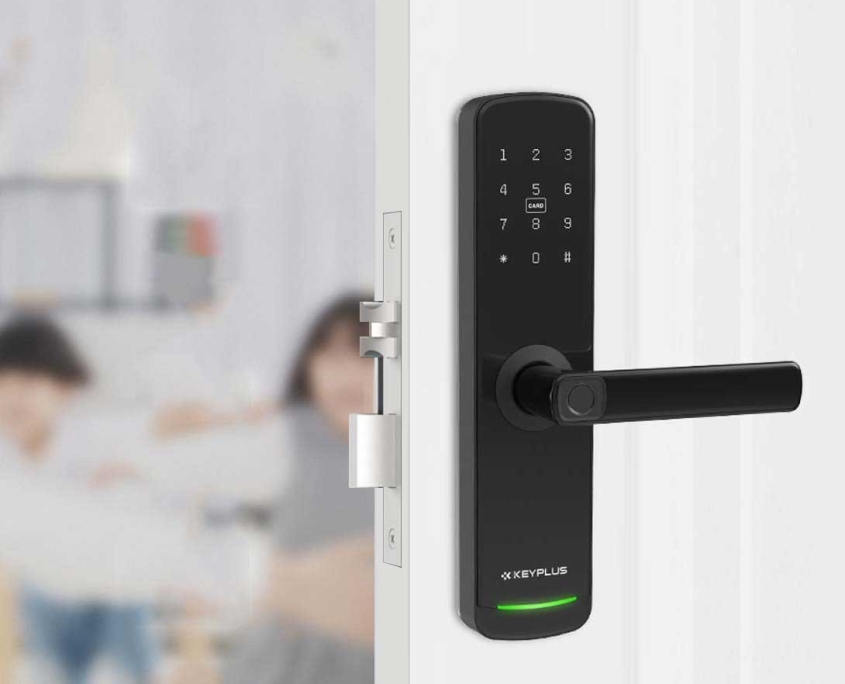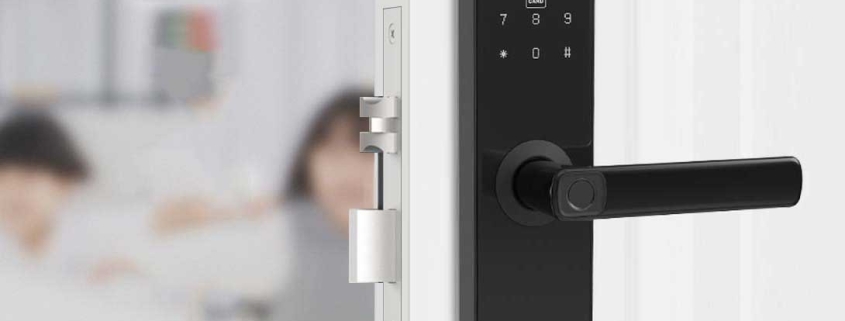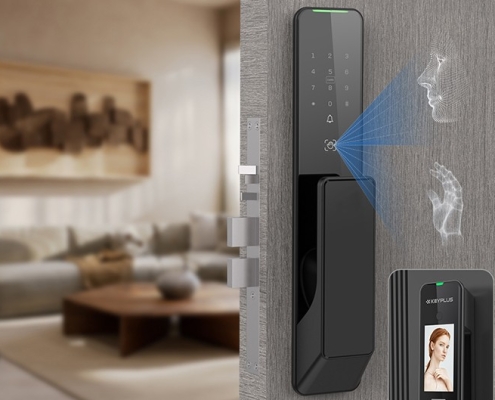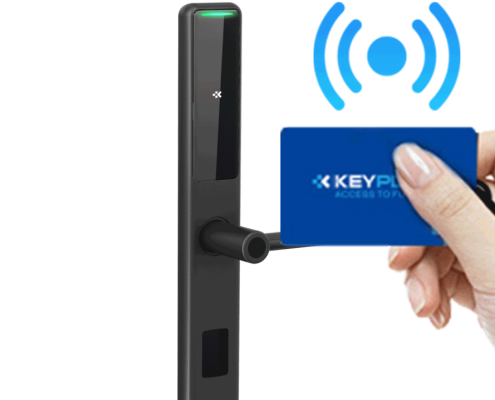What Powers Electronic Door Locks?
Electronic door locks have revolutionized home security, offering keyless convenience and smart features. But how do these modern locks actually get their power? If you’re considering installing one, understanding their power sources is crucial for choosing the right model and maintaining it properly.
In this comprehensive guide, we’ll cover:
-
The 4 Main Power Sources for Electronic Locks
-
Battery Life Expectancy by Lock Type
-
What Happens When Power Fails? Backup Options
-
Wired vs. Wireless Power: Which is Better?
-
Energy-Saving Tips for Longer Battery Life
-
Future Power Technologies for Smart Locks
By the end, you’ll know exactly how to keep your electronic lock running smoothly and what to do when the power runs out.
1. The 4 Main Power Sources for Electronic Locks
A. Standard Batteries (Most Common)
-
Types Used: AA, AAA, or 9V batteries
-
Typical Life: 6-12 months
-
Best For: Most residential smart locks
Pros:
Easy to replace
No wiring needed
Portable power source
Cons:
Requires periodic replacement
Performance declines in cold weather
B. Lithium Batteries (Longer Lasting)
-
Types Used: CR123A, CR2, or proprietary lithium packs
-
Typical Life: 1-2 years
-
Best For: High-end smart locks
Pros:
Longer lifespan
Better cold weather performance
More consistent power output
Cons:
More expensive to replace
Not always readily available
C. Hardwired Electrical Connection
-
Power Source: Home’s electrical system
-
Typical Life: Continuous power
-
Best For: Commercial buildings or smart homes
Pros:
Never needs battery changes
Most reliable power source
Cons:
Requires professional installation
Doesn’t work during power outages
Limited residential options
D. Kinetic Energy (Self-Powering)
-
Power Source: Turning the lock mechanism
-
Typical Life: Essentially unlimited
-
Best For: Keyless entry without batteries
Pros:
No batteries needed
Always works
Cons:
Limited smart features
Not common for residential use

2. Battery Life Expectancy by Lock Type
| Lock Type | Power Source | Average Battery Life |
|---|---|---|
| Basic Keypad | AA batteries | 1-2 years |
| Bluetooth Smart Lock | AA/AAA batteries | 6-12 months |
| Wi-Fi Smart Lock | AA/Lithium | 3-6 months |
| Fingerprint Lock | Lithium | 6-12 months |
| Commercial Electric Lock | Hardwired | Continuous |
Note: Actual battery life varies based on usage and environmental factors
3. What Happens When Power Fails? Backup Options
A. Physical Key Override
Most quality electronic locks include:
-
Hidden keyhole behind faceplate
-
Emergency key stored securely
-
Works even with dead batteries
B. External Power Jack
Many models feature:
-
9V battery terminal for emergency power
-
USB-C charging port (newer models)
-
Works instantly when connected
C. Mechanical Override
Some commercial locks offer:
-
Manual release lever
-
Break glass emergency option
-
Always works regardless of power
4. Wired vs. Wireless Power: Which is Better?
Wireless (Battery) Pros:
Easy DIY installation
Portable between doors
Works during power outages
Wired (Electrical) Pros:
Never change batteries
More reliable long-term
Better for high-use locations
Best Choice For You:
-
Renters: Battery-powered
-
Homeowners: Battery with wired option
-
Businesses: Hardwired systems
5. Energy-Saving Tips for Longer Battery Life
-
Disable unnecessary features like constant activity logging
-
Use lithium batteries in cold climates
-
Reduce Wi-Fi usage (switch to Bluetooth when home)
-
Install firmware updates (often improve efficiency)
-
Check battery contacts (clean corrosion regularly)
6. Future Power Technologies for Smart Locks
Emerging solutions include:
-
Solar-powered locks (already in some commercial models)
-
Energy-harvesting from door movements
-
Wireless power transfer (like phone charging pads)
-
Supercapacitors for instant emergency power
Final Verdict: Choosing the Right Power Solution
For most American homes:
AA battery-powered smart locks offer the best balance
Always choose models with physical key backup
Lithium batteries worth it for cold climates
Remember:
-
Check battery levels monthly
-
Keep spare batteries handy
-
Consider a lock with low-battery alerts
Pro Tip: Look for ENERGY STAR certified smart locks for maximum efficiency.
Have questions about your specific lock’s power needs? Contact us in the comments section below!








